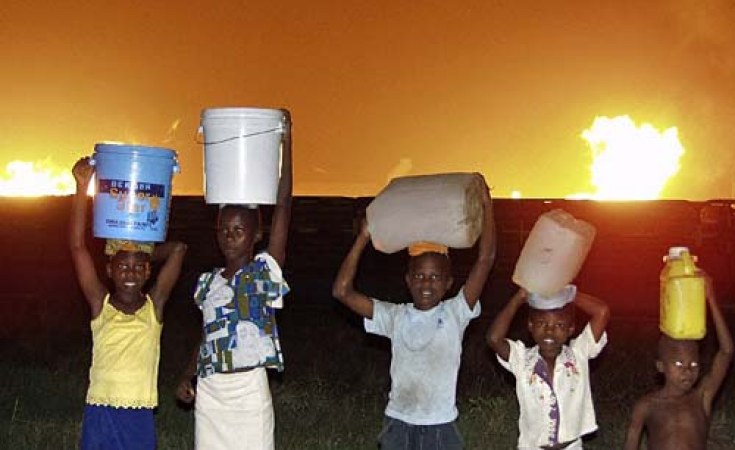The disappearance of President Umaru Yar'Adua to Saudi Arabia for medical treatment for the past nine weeks – without thought to orderly constitutional succession – has demonstrated once again to Nigerians that their government puts its own interests above those of the people. Moreover, it has further fueled pessimism among the nearly 90 million Nigerians under the age of 25.
Simplistic analysis of the reasons for Nigeria's problems of governance – that Christians are at odds with Muslims, the North with the South – has distracted the world's attention from what many Nigerians believe is the principal threat facing our country: the disenfranchised youth; a government that lacks competency and credibility; and a sense of hopelessness and despair about the future.
It is right that Nigeria and the global community should seek to understand how a single wealthy student could become so radicalized as to be deployed as a pawn in an attempt to bring down an airliner on Christmas Day. We must dissect the incident and explore its roots, the enabling network and the systemic and human errors that nearly cost 300 innocents their lives. We must shut down the teaching of hate and we must strip extremists of their tools of destruction and make sure our freedoms are not exploited by our enemies.
However, we must be deliberate in our search for solutions. Unfortunately, we have seen knee-jerk and reactionary responses that ultimately compound the problem. As I recently said in an open letter to President Barack Obama, "adding Nigeria to the travel watch-list, instead of providing an additional security precaution, has sown deep bitterness and distrust on the streets of Lagos and Abuja among people who firmly reject the actions and beliefs of this one tragically-misguided individual."
Nigeria doesn't need billions of dollars in reconstruction funds, nor does it need American or NATO troops to prevent the growth of Al Qaeda. Nigeria needs the international community – the United States, the European Union, the African Union and particularly the United Kingdom — to invest diplomatic and commercial energies in ensuring that our next election in 2011 will be open and transparent.
In a country where nearly U.S. $100 million is generated every day from the export of oil, fewer than half of Nigeria's people have access to running water. There is no reliable electricity supply, leaving the government and businesses to run on diesel-powered generators and the rest of the population in the dark. Both the United Nations Children's Fund and the World Health Organization grade Nigeria as being among the countries with the shortest life expectancy in the world – 45 years – and having one of the highest maternal mortality rates.
Nigeria needs a government accountable to its people that would invest billions of dollars of oil monies in power generation, roads, healthcare and the like; a government that would give Nigerian youth a channel for their genius – high-caliber universities and meaningful jobs.
In January 2009, a committee set up by President Yar'adua produced a report with the goal of guaranteeing free and fair elections. Its core recommendation was that the country's electoral commission should be truly independent, with leadership reflecting a broad representation of Nigerian society. President Yar' adua, who appointed the committee after admitting that the election that brought him to power was flawed, consigned the report to the dustbin.
In November 2009, representatives from 25 sub-Saharan countries gathered in Accra, Ghana, to develop recommendations for "raising standards of professionalism, improving electoral processes and mitigating election-related violence" in Nigeria. The group came up with more than 160 recommendations – again, including one that the electoral commission should be independent.
All Nigeria's stakeholders must use their influence to persuade the government to implement electoral reform. And there should be consequences when good governance is not practiced and human rights not observed. Tools that personalize sanctions against offenders, such as travel bans and arrests for violation of international criminal law, should be deployed.
In the past five years, Nigerian civil society has been awakened. It is now engaged, and well enough equipped with the technologies of texting, video cameras and social networking to become the emerging gatekeepers of democracy. But even an empowered civil society can't change the nation's destiny alone. When $100 million a day in oil revenues is at stake, those who have stolen power and cornered resources through corrupt elections do not give up easily.
In both and short and the long term, "watch listing" tens of millions of Nigerian travelers will not end extremism. The world should rather focus on holding accountable the criminal enterprises that masquerade as a sovereign state, and encouraging democracy and good governance.
Nasir El-Rufai was minister of the Federal Capital Territory of Nigeria from 2003 to 2007.


